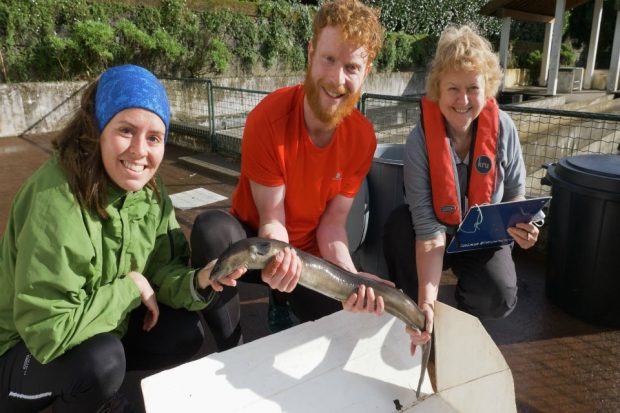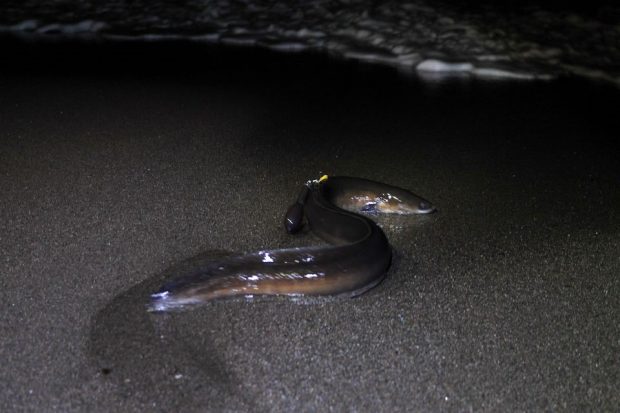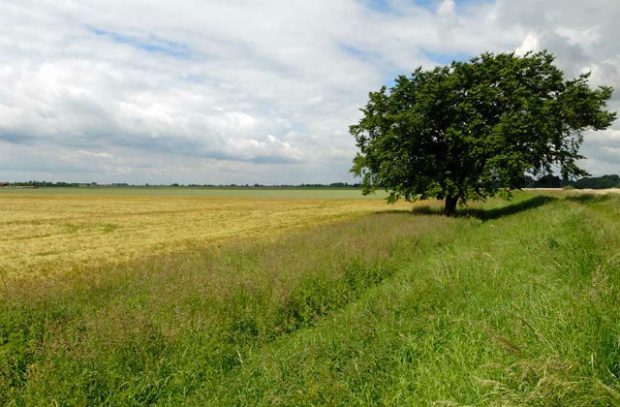Government sets out plans to overhaul waste system

There has been widespread positive coverage including in The Telegraph, Mirror, Times, Guardian and The Financial Times of the government’s consultations launched today to overhaul the waste system, cut plastic pollution, and move towards a more circular economy.
Building on commitments made in our landmark Resources and Waste Strategy published in December, the consultations provide detail on plans to make packaging producers pay the full cost of dealing with their waste, the introduction of a consistent set of materials collected across England from households for recycling, and bringing in a Deposit Return Scheme (DRS) for cans and bottles, subject to consultation.
Yesterday, the Sunday Express and The Sunday Telegraph reported the government will also consult on weekly food waste collections for all households in England, as well as free garden waste collections.
BBC online reports on concerns that a DRS for cans and bottles could be ‘watered-down’ by industry. We are clear in our consultation that we are seeking views on two options - ‘on the go’ or ‘all in’ - for how a DRS could work if introduced.
The consultations will run for 12 weeks.
Launching the consultations today, Environment Secretary Michael Gove said:
We are committed to going further and faster to reduce, reuse, recycle and cut waste. That’s why we are leading the way to move away from being a ‘throw-away’ society and drive up domestic recycling.
Through our plans we will introduce a world-leading tax to boost recycled content in plastic packaging, make producers foot the bill for handling their packaging waste, and end the confusion over household recycling.
We are committed to cementing our place as a world leader in resource efficiency, so we can be the first generation to leave our environment in a better state than we inherited it.
On the same day, government has also launched its consultation on introducing a world-leading tax on plastic packaging which does not meet a minimum threshold of at least 30% recycled content, subject to consultation, from April 2022. This will address the current issue of it often being cheaper to use new, non-recycled plastic material despite its greater environmental impact.
The Chancellor of the Exchequer Philip Hammond said:
Plastic packaging makes up two-thirds of all the plastic waste that pollutes this country and wreaks havoc on our environment. It’s our responsibility to do something about it and that’s why we will introduce a new tax on the producers of plastic packaging that don’t use enough recycled material.
This action, coupled with the other measures we are bringing in, will help drive up recycling, cut the amount of new plastic being used and protect our environment for future generations.
The consultations build on existing government work to tackle unnecessary waste and plastic pollution, including a world-leading ban on microbeads in personal care products, a 5p plastic bag charge which has taken over 15 billion single-use plastic bags out of circulation and a consultation to extend it to all retailers, plans to ban the sale of plastic straws, stirrers, and plastic-stemmed cotton buds, a £15 million pilot scheme for reducing food waste, and up to £10 million to clear the worst abandoned waste sites that blight local communities.
Eels fitted with satellite tags to solve ancient migration mystery

The Daily Telegraph and Daily Express report on news from the Environment Agency about a project better protect eels, a critically endangered species, by learning more about their migration routes. Prehistoric eels travel around 6000 kilometres from Europe across the Atlantic Ocean but exactly where they spawn remains completely unknown. In December, three eels were fitted with satellite tags and released into the Atlantic Ocean. The Environment Agency was joined by the University of the Azores, Zoological Society of London, Defra, Cefas, the University of Hull and DTU-Aqua in the study. At a local level the Environment Agency has installed eel and fish passes at man-made structures that can impede the movement of eels along our waterways as well as requiring screens to be added to abstraction intakes to protect eels and other species.
Making the announcement Environment Agency project lead and researcher Ros Wright said:
The European Eel is critically endangered so it is important that we solve the mystery surrounding their complete life-cycle to support efforts to protect the spawning area of this mysterious species.
Migrating eels are driven to travel vast distances by an innate desire to spawn. We hope that at least one of these three satellite tagged eels will become a superhero to the species by completing the migration lifecycle giving agencies and conservationists around the world the clues needed to protect this iconic species.
This is the first time we’ve been able to capture eels in the Azores and also ones that are large enough to carry satellite tracking tags so everything recorded since the eels started their journey will reveal information about eel migration that has never been known before.

Countryside Stewardship opens for applications
Today (18 February) farmers, foresters and land managers can request 2019 application packs for Countryside Stewardship (CS).
These agreements provide a viable, long-term income source to those who deliver environmental benefits on their land, such as providing habitats for local wildlife and nectar plots for insect pollinators.
In the future, the delivery of public goods will be at the forefront of our farming policy, meaning those who get into agreements will be well-placed to benefit from the future scheme.
Those who want to undertake environmental work on their land or have expired or expiring Environmental Stewardship agreements can apply for:
- Mid Tier– Farmers and land managers can choose from all available multi-year options and capital items to form an agreement which delivers local environmental benefits. Application packs can be downloaded through the online Rural Payments Service, or you can request to receive an application pack in the post by contacting Rural Payments Agency (RPA) by 31 May 2019.
- Higher Tier– Applicants managing more complex land in environmentally significant sites, commons or woodlands which requires support from Natural England or the Forestry Commission. Check if you are eligible to apply by contacting RPA by 31 March 2019 to receive an application pack.
- Wildlife Offers– Designed to help guide farmers to the most straightforward options for their farm type, making it easier and simpler to secure a CS agreement. Offers are split into different packages for farm types: arable, lowland grazing, upland, and mixed farming. These applications are the easiest to complete, and can be done online via the Rural Payments Service. Applicants can also request to receive an application pack in the post by contacting RPA by 31 May 2019.
- Hedgerows and Boundaries– Provides grants for farmers to restore existing farm boundaries and hedgerows on their land. Applications for a Hedgerows and Boundaries Grant can be completed on the Rural Payments Service. Applicants can also request to receive an application pack in the post by contacting RPA by 31 March 2019.
Farming Minister George Eustice said:
We have taken steps to simplify the Countryside Stewardship scheme to make it easier to access. As we start to move future farming policy towards schemes that deliver sustainable food production, entering a Countryside Stewardship agreement can be an important first step and all agreements are guaranteed for their full lifetime.
We have also asked customers, agents and stakeholders to share their views on Countryside Stewardship. The videos can be found here.
Zoos and regulations

Over the weekend, the i newspaper reported on safety in British zoos. This coverage followed the death of two tigers in two UK zoos and an i newspaper investigation into the regulations surrounding zoos.
The current licensing regime for zoos is enforced by local authorities, with regular inspections carried out by inspectors from Defra’s centralised list – all of whom will need to attend mandatory training to ensure their competency. Zoos have an obligation to comply with Defra’s detailed zoo practice standards and these are kept under review by our Zoos Expert Committee (ZEC), which includes leading animal welfare experts.
A Defra spokesperson said:
The UK has some of the highest animal welfare standards in the world. The current licensing regime for zoos is enforced by local authorities, but they are regularly inspected by trained professionals against our high standards. These standards are developed together with leading animal welfare experts on our Zoos Expert Committee.
Defra’s Zoos Expert Committee provides independent, technical advice to the UK Government on zoo matters. Following a recent high profile case involving a British zoo, the ZEC has provided recommendations for improving the licensing system which we are introducing. The recommendations include a mandatory training course for all Defra’s zoo licensing inspectors.
The ZEC’s remit includes keeping the operation and implementation of the zoo licensing system in the UK under review; and to advise or make recommendations to Defra or devolved governments of any legislative or administrative changes that may be necessary.
